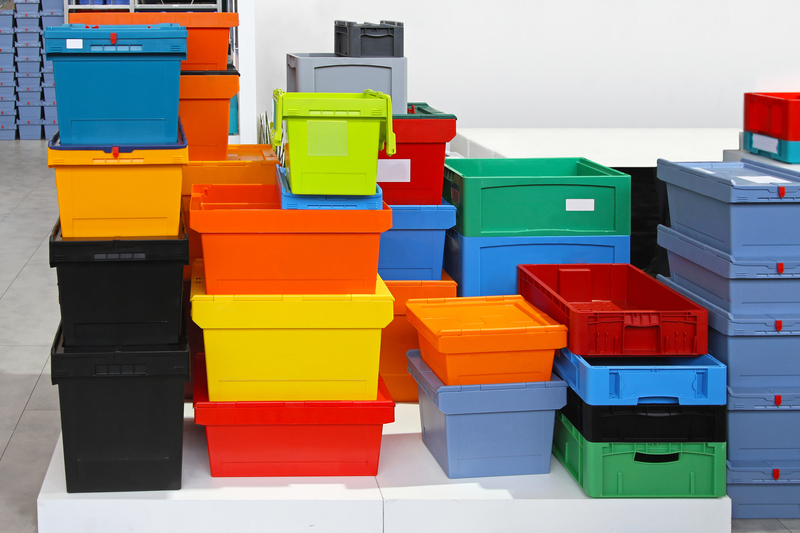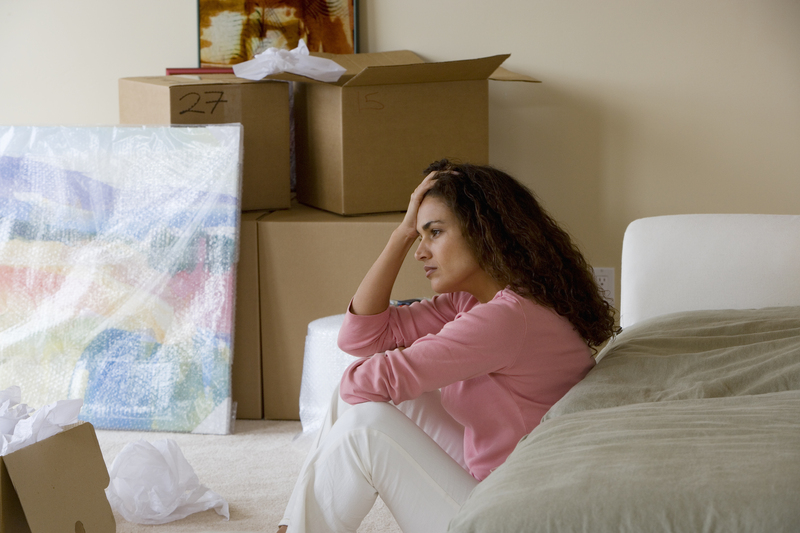How to Pack, Plan, and Move Without Losing Your Cool: The Ultimate Guide
Moving to a new home can be both exciting and stressful. With multiple things to track and plenty to coordinate, it's easy to feel overwhelmed. But with the right strategy, you can navigate the process smoothly and start your new chapter with more joy and less chaos. This comprehensive guide explores effective techniques for planning, packing, and moving so you don't lose your cool during the transition.
Why Proper Planning Makes All the Difference
Every successful relocation rests on a solid foundation: thoughtful planning. Without it, crucial steps may slip through the cracks, resulting in missed tasks, misplaced belongings, or unnecessary costs. Whether you're moving across town or embarking on a cross-country relocation, a clear plan helps you stay organized and calm under pressure.
The Benefits of a Well-Organized Move
- Reduces last-minute stress by ensuring nothing is forgotten.
- Keeps you on schedule and within budget.
- Protects your valuables from being damaged or lost.
- Makes settling in at your new place faster and easier.
Start Early: The Key to Staying Cool
Begin your moving prep as early as possible--ideally two to three months before moving day. Early birds have plenty of time to research, sort, donate, pack, and load without panic. Even if a last-minute move is necessary, a clear checklist can provide structure and focus.

The Ultimate Moving Checklist: Your Master Blueprint
To successfully move without losing your cool, creating a step-by-step moving checklist is essential. Here's what to include, so nothing gets missed:
- Decide on your moving date and notify your landlord (if renting) or start the selling process.
- Research moving companies or reserve a moving truck, if needed.
- Sort belongings and declutter--donate, sell, recycle, or discard items you no longer need.
- Obtain packing supplies: boxes, tape, bubble wrap, markers, and specialty containers.
- Begin packing non-essentials (off-season clothing, decor, rarely used items).
- Notify utilities and services (power, water, internet, subscriptions) of your move.
- Change your address with the post office, banks, insurance, and important contacts.
- Pack an essentials box for moving day and the first night in your new home.
- Label all boxes clearly by room and contents for an easier unpacking experience.
- Perform a final walk-through of your old home to ensure nothing is left behind.
Declutter Before You Pack: Lighten the Load
One of the smartest moves in the pre-packing phase is to declutter. The less you have to pack, the easier your move will be. Decluttering reduces moving costs, minimizes packing time, and lets you start fresh in your new place.
Declutter Strategically
- Go room-by-room: Sort through closets, drawers, and storage areas one at a time to avoid overwhelm.
- Use four boxes: Label them Keep, Donate, Sell, and Trash. Place each item in its designated box as you go.
- Be ruthless: If you haven't used it in a year, let it go!
- Recycle or donate responsibly: Many organizations are eager for your gently used items.
Expert Packing Tips to Streamline the Move
If you want to pack, plan, and move without losing your cool, mastering smart packing techniques is essential. Start with quality materials and don't leave things to the last minute!
Gather the Right Packing Supplies
- Sturdy boxes of various sizes
- Packing tape and dispenser
- Bubble wrap, packing paper, or towels for cushioning
- Permanent markers and colored labels for easy identification
- Specialty boxes for dishes, TVs, art, and wardrobe items
Room-by-Room Packing Strategy
Don't pack everything at once. Work through one area at a time and pack non-essentials first. Save frequently used items for last. This keeps your home functional and manageable during the transition.
Label Everything
- Write the room and a brief description of contents on every box (e.g., "Kitchen--Pots and Pans").
- Color-code boxes by room for even easier identification.
- Number boxes and keep an inventory to avoid confusion or misplaced items.
Pack for Protection
- Wrap fragile items individually and fill empty spaces to prevent shifting.
- Pack heavy items in small boxes to avoid back strain and accidents.
- Don't overfill boxes--make sure each box can be securely closed.
- Keep important documents and valuables with you, not on the moving truck.
Essentials Box: Your Survival Kit
Moving day can be exhausting, and you don't want to rummage through boxes looking for necessities. Pack a box or clear bin with:
- Toiletries
- A change of clothes
- Medications and first-aid supplies
- Chargers and devices
- Snacks and bottled water
- Important documents and paperwork
This essentials kit will help you stay comfortable on your first night without stress.
Planning Your Move: DIY or Professional Movers?
Determining whether to tackle the move yourself or hire professionals can greatly affect your stress levels. Weigh the pros and cons to decide what works best for your situation, budget, and timeline.
Hiring Professional Movers
- Convenience: Movers handle heavy lifting, logistics, and transportation.
- Expertise: They are trained to pack and move valuable or bulky items safely.
- Time-saving: Ideal for busy schedules or long-distance moves.
- Peace of mind with insurance and guarantees.
DIY Moving
- Cost-effective for local or small-scale moves.
- More control over how items are handled and packed.
- Enlist help from friends and family for a cooperative experience.
- Allows for flexible scheduling.
Consider factors such as distance, size of your home, time constraints, and budget when making your choice. Some even opt for a hybrid approach--professionals do the heavy lifting, while you pack and handle small valuables on your own.
Moving Day: Staying Calm and in Control
When the big day arrives, it's normal for nerves to kick in. But with everything already in motion, you can get through the day calmly with a few simple moves:
- Get plenty of rest the night before to avoid exhaustion.
- Eat a solid breakfast and stay hydrated.
- Keep your essentials box and important documents handy, not buried within the moving truck.
- Communicate with movers or helpers about your plan and expectations.
- Do a final sweep of your old home before leaving, ensuring nothing is forgotten.
- Take deep breaths and keep a positive attitude!
Settling Into Your New Home: Unpack Without the Overwhelm
After the truck is unloaded and the keys are in your hand, your new adventure begins. Here's how to settle in without stress:
Prioritize Unpacking by Room
- Start with the essentials--kitchen, bathroom, and bedrooms so you can eat, clean, and rest.
- Take your time with the rest, setting up one area at a time.
- Refer to your box labels and inventory list to make unpacking easier.
Make Your New Place Feel Like Home
- Arrange furniture and decor in a way that feels comfortable and familiar.
- If possible, clean your new home before unpacking to start fresh.
- Update your address on online services, subscriptions, and memberships.
- Introduce yourself to neighbors and explore the neighborhood for a sense of belonging.
Extra Tips for a Stress-Free Move
Want even more ways to move without losing your cool? Here are extra tips for success:
- Visualize the process: Imagine moving day step-by-step to anticipate potential hiccups.
- Enlist support: Don't hesitate to ask family or friends for help--it makes a world of difference.
- Take breaks: Give yourself time to rest and recharge during long packing sessions.
- Keep important phone numbers and paperwork accessible.
- Maintain flexibility: Sometimes things don't go as planned; adapt and keep perspective.

Frequently Asked Questions
How can I make packing easier for a big move?
Break it down into manageable chunks. Start early, use a checklist, and pack a few boxes each day. Declutter before you pack to drastically lighten your workload.
What are the most forgotten tasks when moving?
People often forget to change their address, transfer utilities, or keep an essentials box for the first night. Write these on your checklist to avoid last-minute panic.
How do I avoid stress during a move?
Plan ahead, stay organized, and ask for help. Remember to take care of yourself--rest, eat, and keep a positive mindset.
Is it better to hire movers or DIY?
For long-distance or large moves, professional movers provide peace of mind. For budget-conscious or smaller moves, DIY might suffice. Consider what works best for you.
Conclusion: Moving Without Losing Your Cool Is Possible
With these tips and strategies, your next relocation can be calm, systematic, and even enjoyable. Proper planning, organized packing, and a clear strategy are your best friends for a smooth transition. Whether you're moving solo or with a family, use this guide as your moving companion and start your new chapter on the right foot. Happy moving!



